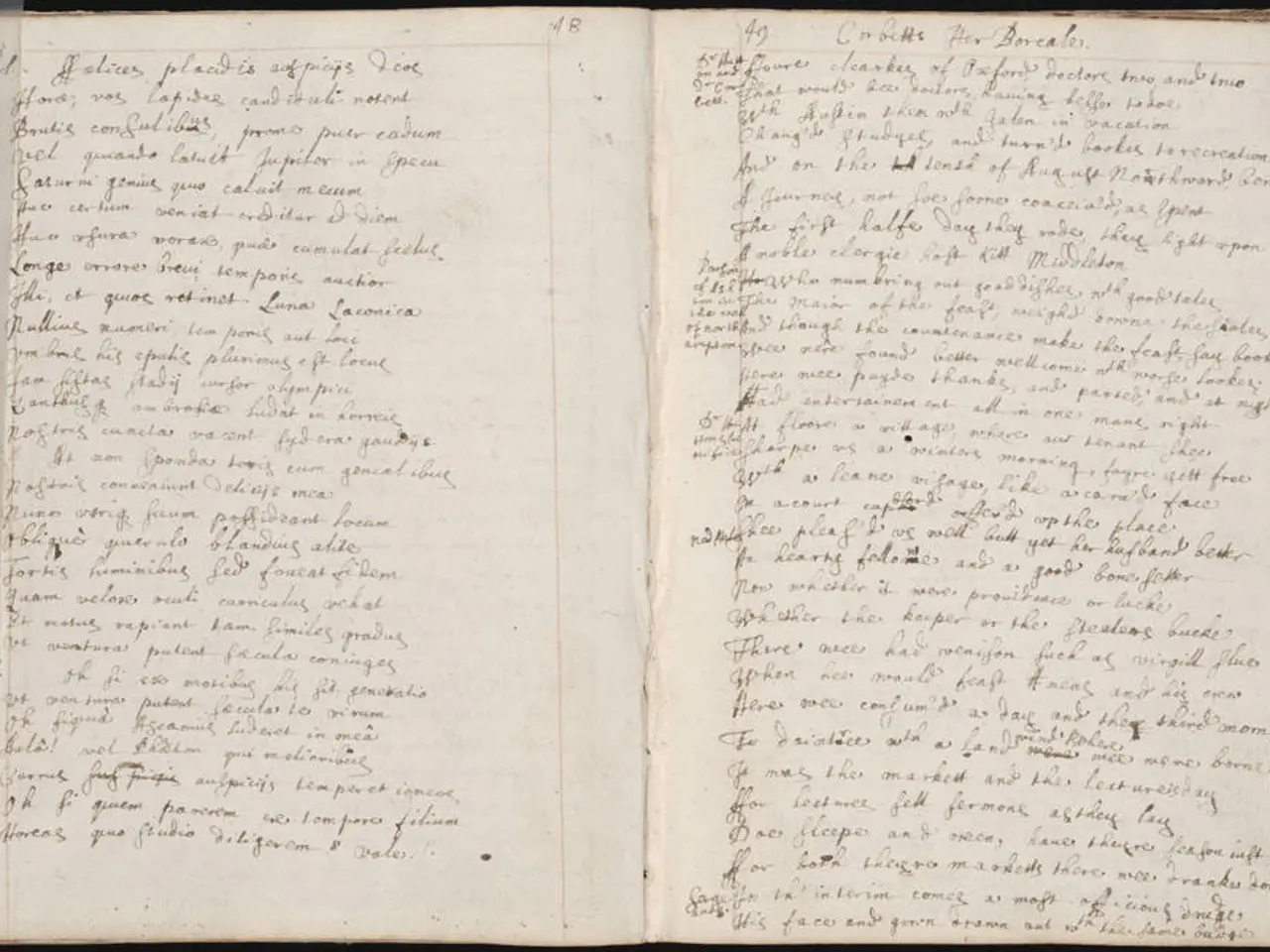Transforming Personal Narrative into Literary Excellence: Esmeralda Santiago's Lasting Literary Impact
Esmeralda Santiago's trilogy of memoirs—When I Was Puerto Rican, Almost a Woman, and The Turkish Lover—offer a compelling exploration of cultural identity, immigration, and the coming-of-age experience as a Puerto Rican woman navigating life between Puerto Rico and the United States.
Born in Puerto Rico, Santiago's life experiences are vividly depicted in her memoirs, including her immigrant experience of adapting to a new environment in the United States. The first half of When I Was Puerto Rican takes place in Puerto Rico, painting a vivid picture of her childhood and early life on the island.
When I Was Puerto Rican speaks to the challenges faced by those who have to balance their cultural identity with a new environment. Santiago's relationship with her parents was a major element of her memoirs, and she often spoke with them while in the process of writing the memoirs to better understand their point of view during those integral times of her life.
Almost a Woman continues the story, with Santiago struggling to balance her Puerto Rican culture and her new American home in Brooklyn. Santiago faced emotional turmoil while writing her memoirs, as it required her to face all the truths in her life that she might not have thought about much before or didn't want to think of again.
Santiago's work has done a lot to bring awareness to the different facets of life that many people have to face. In particular, her memoirs encapsulate the obstacles she faced on her journey toward becoming a woman. Santiago didn't begin with a hardline intention for her memoir; she just knew there was a story to tell and she had to be the one to tell it.
Santiago's first memoir was published after research, discussions, and emotional turmoil, and the moment she held a physical copy of her work was the moment in which she officially saw herself as a writer. Santiago's subsequent novels, Conquistadora and Las Madres, expand her thematic focus to historical and intergenerational narratives that explore colonial legacies, gender roles, and power struggles within Puerto Rican society.
Santiago suggests that students who are good readers can recommend books to their teachers and professors, especially if the student is in the race/culture/language minority at school, to push for representation in English curriculums. Santiago's literary impact lies in her vivid, authentic portrayal of Latina identity in America, contributing significantly to Latino literature by amplifying voices that were historically underrepresented in the American memoir genre.
Santiago is also the author of fictional pieces, including "Conquistadora" and "Las Madres". In "Turkish Lover", Santiago leaves home at the age of twenty-one to live independently and is swept off her feet by a Turkish man named Ulvi. Santiago kept track of her life in journals and diaries during adolescence, which helped her recall events and people for her memoirs.
In conclusion, Santiago's trilogy of memoirs sheds light on identity, immigration, and maturation from a Latina perspective, marking a pivotal point in Latino memoir literature. Her later novels build on these themes by engaging with historical contexts and broadening the exploration of race, gender, and power in Puerto Rico’s colonial past and present.
- Esmeralda Santiago's memoirs, particularly When I Was Puerto Rican, spotlight the challenges faced by individuals trying to balance their cultural identity with a new environment, offering a significant contribution to literature and contributing to the amplification of historically underrepresented voices in the American memoir genre.
- Santiago's work extends beyond memoirs, as she is also the author of fictional pieces like "Conquistadora" and "Las Madres", exploring historical and intergenerational narratives that delve into colonial legacies, gender roles, and power struggles within Puerto Rican society.
- In Turkish Lover, Santiago explores fashion-and-beauty and entertainment aspects of her life, as she leaves home at the age of twenty-one to live independently and is swept off her feet by a Turkish man named Ulvi.
- By encouraging students, especially those who are race/culture/language minorities at school, to recommend books that represent their experiences, Santiago highlights the important role literature can play in shaping and reflecting cultural identity and history, impacting both lifestyle and entertainment domains.







